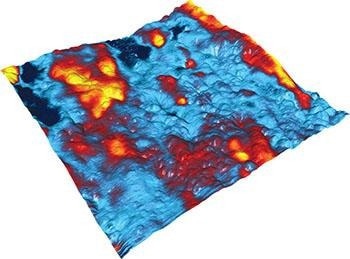There are new ways to construct and evaluate nanoscale electronic devices using an expanding toolkit of scanning probe microscopy-based techniques. This article describes several advanced techniques to characterize and manipulate nanoelectronic devices using an atomic force microscope (AFM).
Beginning with a carbon nanotube (CNT) network device manufactured using traditional photolithography (micron-scale resolution), it is possible to characterize individual carbon nanotubes, cut unwanted carbon nanotubes, and create an atomic-sized transistor with the capacity to perform single molecule detection.
The MFP-3D™ AFM with the Probe Station Option was used to measure and manipulate various processes to illustrate the recent progress in AFM-based techniques for nanoelectronics research.

Image Credit: Oxford Instruments Asylum Research

This information has been sourced, reviewed and adapted from materials provided by Asylum Research - An Oxford Instruments Company.
For more information on this source, please visit Asylum Research - An Oxford Instruments Company.